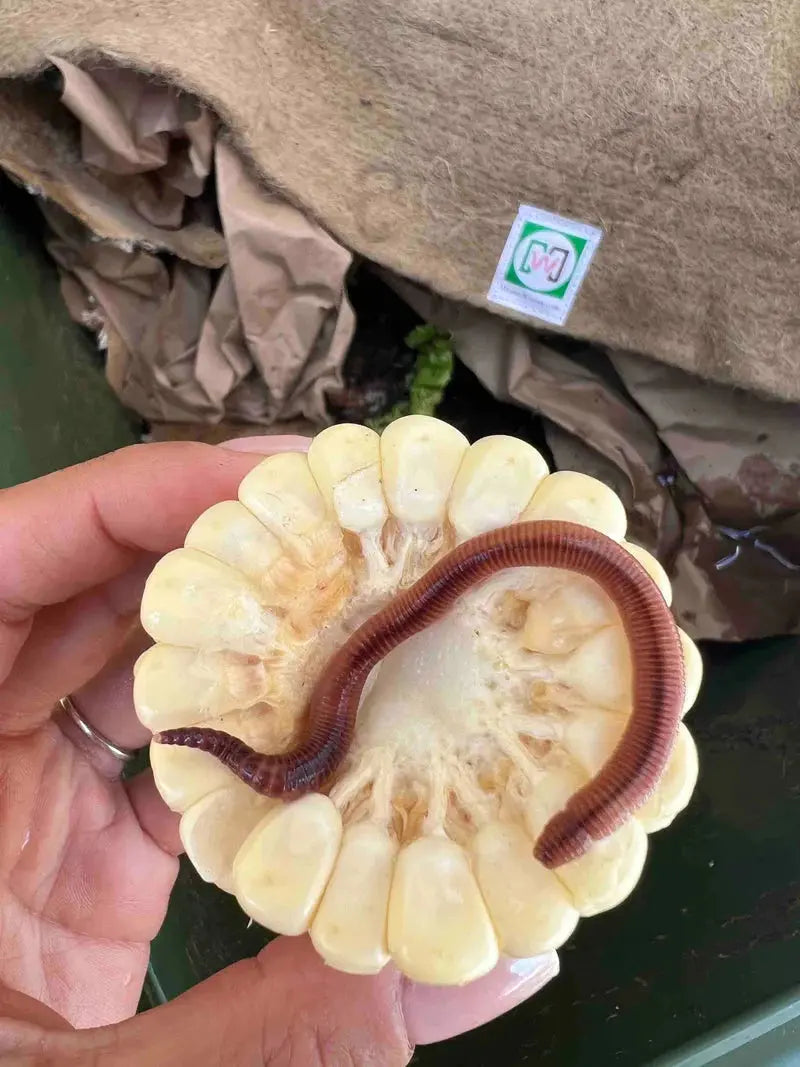Introduction: Why Nightcrawler Worms?
Welcome to the fascinating world of nightcrawler worms! These wriggly creatures are the unsung heroes of both composting and fishing. This comprehensive guide will explore the unique characteristics of Canadian, African, and European Nightcrawlers.
It include a special focus on European Nightcrawlers, our specialty at MemesWorms.com. Buy European Nightcrawlers here. We ship anywhere in the continental US.
History and Origin of Nightcrawler Worms
Nightcrawlers have a rich history that spans continents. Canadian Nightcrawlers are native to North America, European Nightcrawlers originated in Europe, and African Nightcrawlers, as the name suggests, hail from Africa. Over time, these worms have been introduced to various parts of the world for composting and fishing purposes.
Anatomy and Physiology
Nightcrawlers are more than just simple worms. They have a complex body structure that includes a digestive system, a circulatory system, and even a nervous system. Like other earthworms Nightcrawlers have a crop.
Lifecycle and Reproduction
Nightcrawlers have a fascinating lifecycle. They start as tiny eggs, hatch into small worms, and grow into full-sized adults in a matter of a few weeks. They reproduce by exchanging genetic material with another worm, after which they lay cocoons that contain the next generation of worms.
Nightcrawlers and Composting: A Perfect Match
Nightcrawlers are excellent for composting for several reasons:
- Soil Aeration: Their burrowing action helps aerate the soil, improving its structure.
- Nutrient Cycling: They help in breaking down organic matter, converting it into valuable nutrients.
- Waste Reduction: Nightcrawlers can consume large amounts of kitchen waste, reducing the need for landfill disposal.
The Worm Farm: A Haven for Nightcrawlers
Creating a worm farm is an excellent way to keep your nightcrawler worms happy and productive. Whether you're using a worm bin or a more extensive compost pile, the right environment can make all the difference.
Nightcrawlers in Ecosystems
Nightcrawlers play a vital role in ecosystems. They are beneficial earthworms that contribute to soil health, help in the decomposition of organic matter, and even serve as food for other animals like birds and small mammals.
Nightcrawlers and Soil Health
Nightcrawlers are a gardener's best friend. They help create healthy soil by breaking down organic matter and releasing nutrients back into the soil. Their burrowing action also improves soil structure, making it easier for plant roots to grow.
Nightcrawlers as Food for Other Animals
Birds, moles, and even some insects rely on nightcrawlers as a food source. These worms are a crucial part of the food chain, serving as a bridge between the soil's nutrients and higher-level consumers.
Canadian Nightcrawlers: The Northern Giants
Characteristics
- Size: 6-10 inches long
- Color: Dark brown to gray
- Habitat: Prefers cool, moist soil
Best Uses
- Fishing: Excellent fishing bait for larger freshwater fish
-
Composting: Not ideal due to their deep-burrowing nature
Invasive Species: Canadian Nightcrawlers can become invasive in some regions, disrupting local ecosystems.
African Nightcrawlers: The Tropical Dwellers
Characteristics
- Size: 4-8 inches
- Color: Dark purple to brown
- Habitat: Thrives in warm, tropical climates
Best Uses
- Composting: Efficient but requires a warm environment
- Fishing: Suitable bait for medium-sized fish
Weather Sensitivity: African Nightcrawlers struggle to survive when the weather warms or cools dramatically.
European Nightcrawlers: The Versatile Composters (Our Specialty!)
Characteristics
- Size: 4-5 inches
- Color: Pinkish-brown to reddish-brown
- Habitat: Adaptable to various climates, including cooler temperatures
Best Uses
- Composting: A great composting worm for both indoor and outdoor composting bins
- Fishing: Great fishing bait for small to medium-sized fish
Why Choose European Nightcrawlers for Composting?
- Climate Versatility: Unlike other nightcrawlers, European varieties are adaptable to a wide range of climates, making them ideal for various geographical locations.
- Composting Efficiency: European Nightcrawlers are excellent composters, breaking down organic waste into nutrient-rich soil faster than other types.
- Ease of Care: They are low-maintenance, making them perfect for beginners in worm composting.
- Worm Castings: These worms produce high-quality worm castings, which are rich in nutrients and beneficial for plant growth.
- Odor Control: European Nightcrawlers help control the odor in compost bins, making them ideal for indoor composting setups.
Buy European Nightcrawlers
FAQs: Your Nightcrawler Questions Answered
Which Nightcrawler is best for composting?
European Nightcrawlers are the top choice for composting due to their adaptability and efficiency.
Can I use European Nightcrawlers for fishing?
Yes, they are great for catching a variety of fish sizes.
How do I care for European Nightcrawlers?
They are low-maintenance. Just provide a moist environment, regular food scraps, and occasional bedding.
Buy Nightcrawlers Fishing Bait
Conclusion: The Best Nightcrawler for Your Needs
European Nightcrawlers are the jack-of-all-trades in the nightcrawler world. Whether you're a composting enthusiast or a fishing aficionado, these worms offer the versatility, efficiency, and ease of care you need.




1 comment
Polly Condry
What cause European nightcrawls become short and stubby
Leave a comment
All comments are moderated before being published.
This site is protected by hCaptcha and the hCaptcha Privacy Policy and Terms of Service apply.